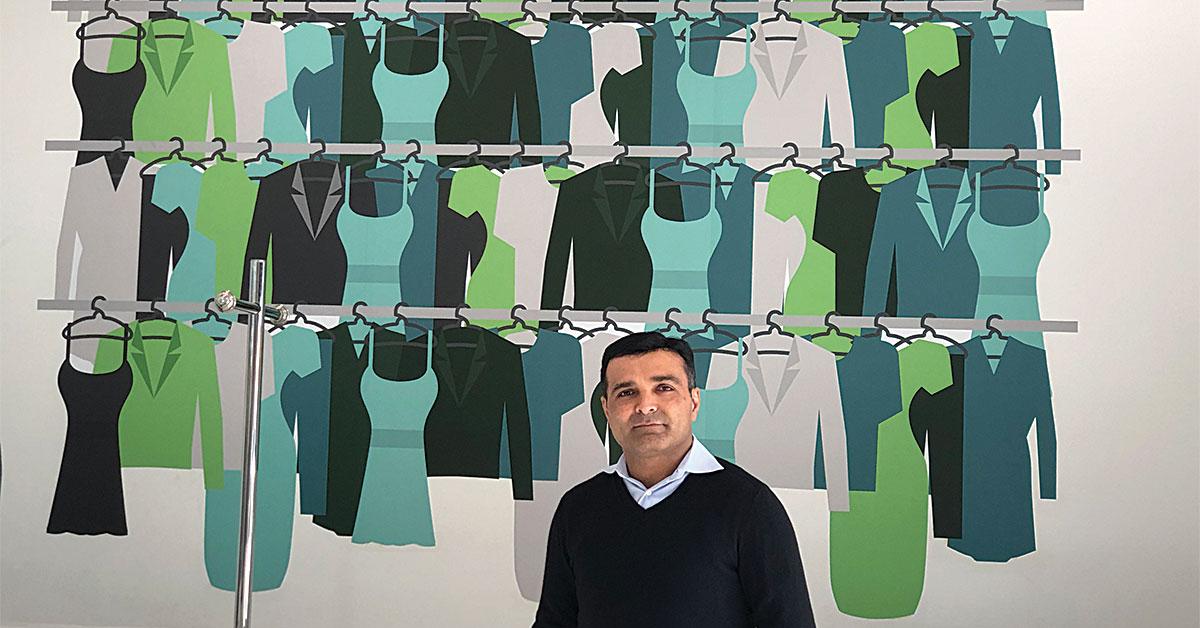CHICAGO — “Are you nuts to wanna be a drycleaning owner!?” This and other exclamations aside, owning a drycleaning operation, as many surely know, takes, at times, a combination of a keen business acumen, a gambler’s winning swagger, and a roll-up-your-sleeves gutsy style.
What solid advice can we impart to owners regarding making a purchase in dry cleaning and going through the actual act of buying a dry cleaner? Let’s hear from our next Texas tipster on actually acquiring a business.
ACQUIRE A CLEANER
“Here are the things I learned from doing 10 acquisitions: If you think you are up for an acquisition, check with your closest advisors: your lawyer, CPA, partner, spouse, smart friend with a successful business. Ask them what they think about the strategy for your business.
“Are you the right kind of person to pull it off? Have you done anything like this in a while? Talk to a reputable broker in your area or in the drycleaning industry. Get a feel for the acquisition process as well.”
This is John Palms, president, CEO, Bibbentuckers LLC, Dallas, a business started in 1996 by several executives with Exxon.
“They acquired leases on the best corners in Dallas, mostly on Preston Road,” Palms says.
“These stores were also plants with 4,000-5,000 sq. ft., and they ran the first delivery routes, up to 11 now, out into their respective neighborhoods.
“Dallas sales are eight figures and half of them are free delivery. Each store/plant has approximately 30-35 employees,” Palms explains.
He shares in detail how the acquisition happened:
“In 2006, I met with well-known drycleaning industry consultant, Richard Ehrenreich. I received excellent advice on how to buy a dry cleaner, along with a comprehensive baseline business plan format,” he notes.
Palms relates that he found Bibbentuckers’ president Randy Bishop through various contacts in Dallas.
“We met numerous times, discussing the business model and growth plan. I was intrigued by what I heard. I saw a long runway for the firm, so I asked if the company had considered selling? The answer was: ‘no but I will run it by the board.’ Weeks later I got a call from Randy indicating the board would consider selling for the right price.”
Palms explains further: “With the help from a seasoned business partner, in the area of mergers and acquisitions, we submitted an acceptable Letter of Intent, known as an LOI, drafted a Private Placement Memorandum, called a PPM, to raise the capital and secure the bank loan.
“The acquisition of the business occurred within three to six months,” Palms says.
“Our strategic plan was to grow organically by acquisitions in all four major cities: Dallas, Austin, Houston, and San Antonio,” he notes, adding, “I had just helped finish a four-year turnaround with a Fla.-based manufacturing company and was ready for the next challenge!”
Palms relates: “We did a reorganization with Bibbentuckers corporate staff and changed one of the store managers to district manager overseeing three stores, a plant, and two drop stores. We also eliminated a route manager, having route drivers report directly to their store GMs.”
WEED-EATER
You can encounter “gotchas” when buying a business. Take note of these tips.
“There are many good professionals in and around our industry,” says John Palms, “who can provide advice and counsel. Your lawyer, CPA, and bookkeeper should be able to keep you out of the weeds, and help you make good decisions.”
He shares what he’s learned from all his acquisitions, including Bibbentuckers.
Palms says, “One of the most important buying ‘criteria’ to start with is the acquisition’s price list. If it is within 10% of yours, great.
“But, if it’s 20% lower, that can be a problem. Even if you ratchet-up the candidate’s pricing, you are still increasing your existing pricing 3-5% once a year minimum.”
In summary, he notes, if you are a high-end cleaner, look for high-end targets. If mid-market or a discount cleaner, look for those that are similar.
“You want to buy revenue and profit at the lowest cost possible,” Palms indicates. “This might mean buying a route or drop store and integrating it into your existing plant. Try to avoid buying plants, if possible, and terminate the lease and move the production to your existing plant, if you have capacity.”
If you have the option to buy the plant property vs. extending your existing lease, Palms says, “look hard at buying the target property. Being a commercial real estate landlord provides one of the highest investment returns in business.”
More how-to tips for the buyer: “Local commercial real estate companies can provide a decent ‘drive-by’ valuation of the property,” Palms relates.
“If it’s close to what the seller wants, make an offer. See if the seller would take a note or even partial. Same for the business itself.”
He also reminds you to talk to your banker and find out what he or she needs to underwrite a target acquisition, such as the latest financials and tax returns of the business and owner; latest financials and tax returns of the target acquisition; executed Letter of Intent and/or Asset Purchase Agreement.
How do you value a typical dry cleaner?
The industry standard, Palms says, uses a formula of three-to-five times the 12 months trailing, owner discretionary income, or EBITDA (means Earnings Before Interest, Taxes, Depreciation, and Amortization) with owner add-backs.
“A three-to-five time range depends on the quality of the assets. Good is a three and great is a five. Some large or fast-growing EBITDA could be a six to seven multiple.
“Your bank will require an appraisal of the business. You can also hire a ‘valuation consultant’ to give you a preliminary valuation on your business. There are several that specialize in the drycleaning industry.
“Maybe the valuation is less than you thought and, therefore, worth keeping around as a fairly dependable revenue stream for several more years,” Palms notes.
Due diligence is a critical phase of the acquisition and the closing. “It can cover items such as employee and customer contracts, evaluation of equipment, computers, vehicles, and building finish-out,” Palms says. “If your seller has leases with landlords beware of the terms, renewals, and assignments. Your lawyer should review these for you.
“The bank will require environmental reports on all properties that have dry cleaning, or may have in the past,” he explains. “If you are buying the property through another entity, such as an LLC, you will need environmental reports just the same.”
Make sure the business has no pending lawsuits. “Check all federal, local, payroll and franchise taxes are paid and current,” Palms reminds, and says, “Run background checks on all key personnel. You can decide who.”
He also advises a buyer to, “Have your bookkeeper and your CPA help you draft a pro forma, also called a forecast, on the business looking out three years. These numbers will be as if you are owning and running the business, not the seller. Remember, you may have healthcare benefits the seller does not!
“Your bank will also want to see this pro forma. Make sure you footnote the projections and assumptions. It certainly helps minimize the surprises,” Palms says.
To all potential drycleaning owners, Palms concludes: “Good luck and remember ... the devil is, indeed, in the details!”
Both of our Texas drycleaning owners have shared valuable how-to tips for those looking to buy new or expand with acquisitions.
You’re not nuts to want to be a drycleaning owner. You’re heading into an exciting, profitable industry.
Take their advice, learn the business, and talk to the key people they recommended. Before you know it, one day soon, you’ll be the one giving the “To-Dos” on how to buy a dry cleaner!
To read Part 1, go HERE.
Have a question or comment? E-mail our editor Dave Davis at [email protected].

